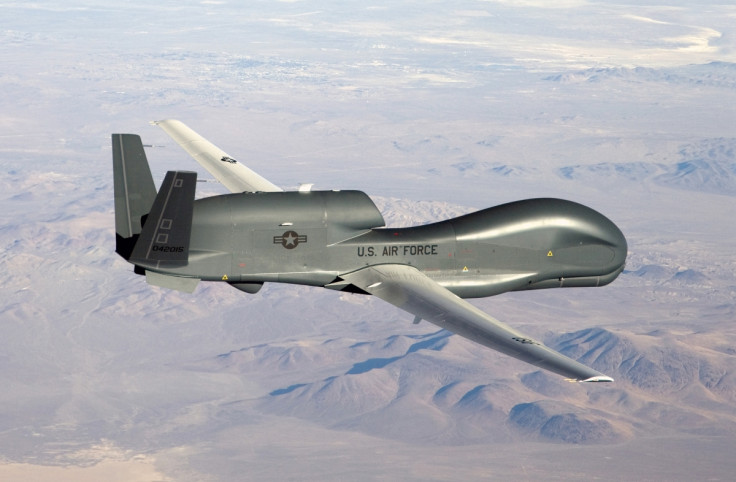US Drones in Japan to Start Monitoring Chinese and North Korea's Interests

Japan-based American military drones are set to kick off their surveillance activities on China and North Korea by closely monitoring the key installations of the Asian countries.
The US Air Force is set to deploy two Global Hawk unmanned aerial vehicles (UAV) for the mission amid territorial and geo-political tensions in the Asian region.
Operations are expected to begin shortly and the deployment will keep a close watch on Beijing's military activities and Pyongyang's nuclear and missile developments.
According to reports, Washington will deploy two of its unmanned aircraft at the Misawa Air Base in Aomori Prefecture later this month while Tokyo plans to procure three more drones next year.
Both the US drones will be stationed in the Japanese base, located about 590kms northeast of Tokyo, until October 2014 under the bilateral agreement between the two countries.
"The Global Hawk provided us with a wealth of data, including surveillance of the crippled reactors at Tokyo Electric Power Co.'s Fukushima No.1 nuclear power plant. The device will be effective in surveying the activities [of] North Korean and Chinese military," a senior military source told Japan's Yomiuri Shimbun.
The Global Hawk drone, which proved its mettle in Iraq and Afghanistan during the war, is about 40 meter wide and 14.5 meter long. It can fly up to 30 hours and has an operational altitude of 18,000 meters (60,000 ft).
Japanese aviation authorities have also issued notice to all the operators in the region urging them to inform the Misawa Air Base if their flights plan to cruise at an altitude of 6,100 meters or lower.
The US intends to fly the drones about two times a week.
Given the political climate existing in the region, the latest move is, perhaps, widely seen as a reinforcement of the continuing military cooperation between Japan and the US, rather than a fresh initiative to radically strengthen the countries' surveillance capabilities.
This is because of the fact that both the US and Japan rely on satellite imagery to keep track of North Korea's actions and Beijing has no interest in placing the highly-guarded secrets of its naval assets in the disputed chain of islands in the East China Sea.
Nonetheless, the drones, equipped with high-performance sensors, will certainly be able to provide well-timed intelligence data as the satellites are in orbit.
© Copyright IBTimes 2025. All rights reserved.






















